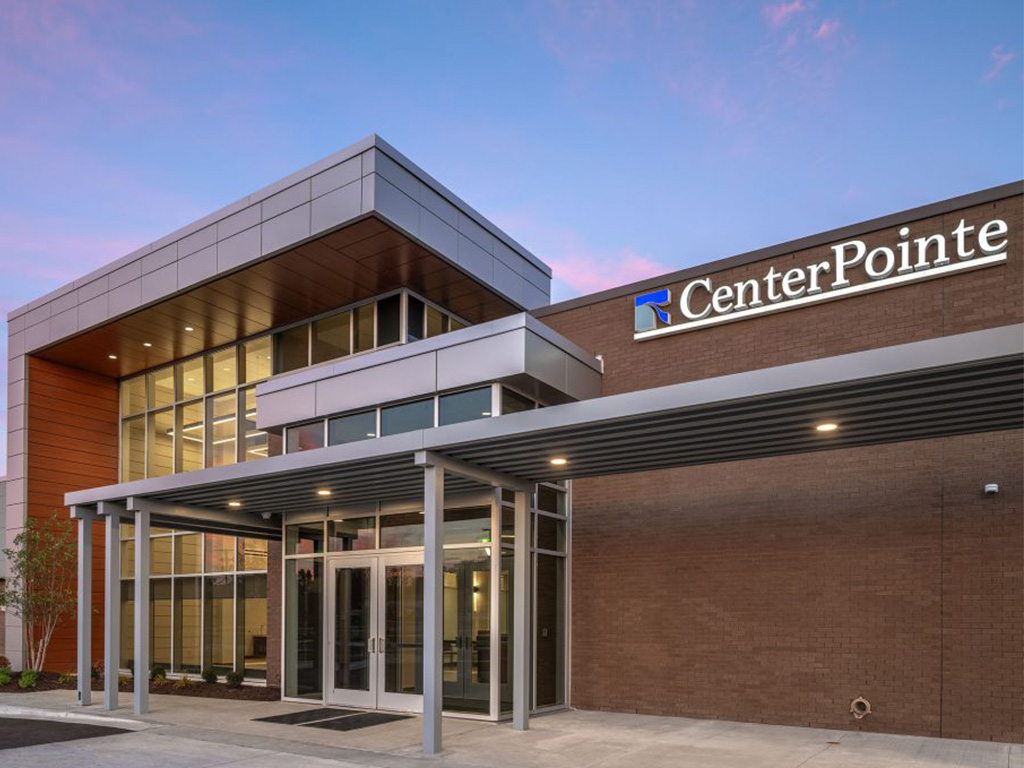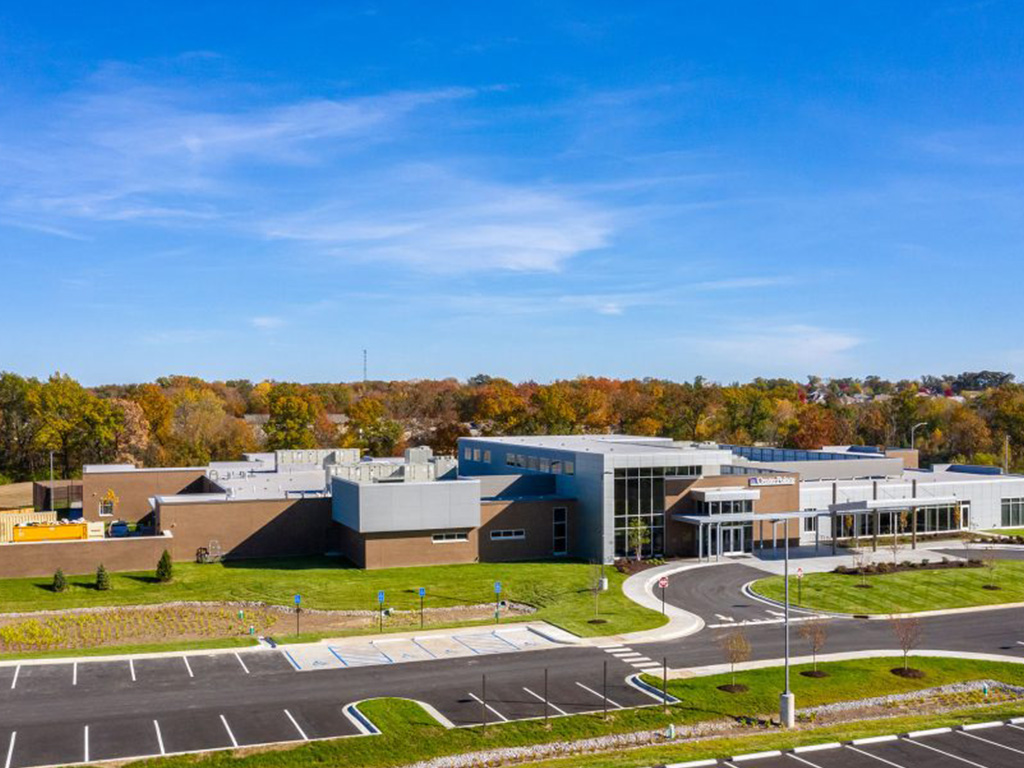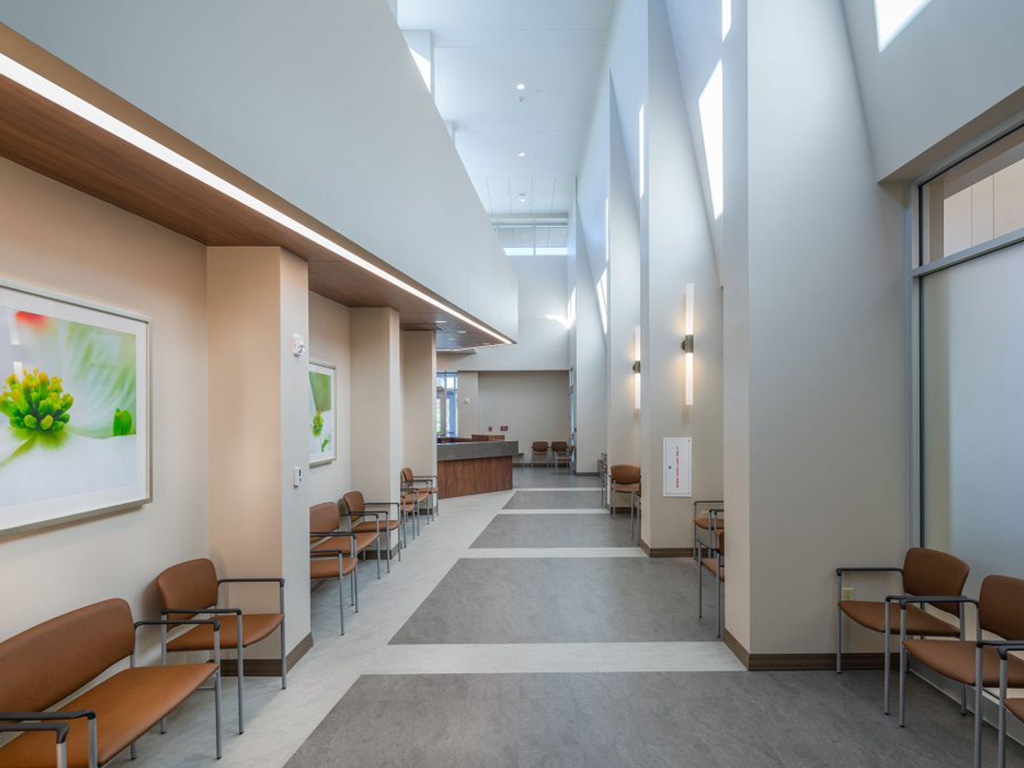Transcranial magnetic stimulation (TMS) therapy has proved to be an effective element of care for adults who have been struggling with treatment-resistant depression and certain other mental health concerns. CenterPointe Hospital of Columbia employs the NeuroStar TMS system to help adults who have not responded to other forms of treatment for major depressive disorder.
What Is TMS Therapy?
TMS therapy is a safe, noninvasive process that uses focused electromagnetic pulses to stimulate certain areas of the brain. These pulses are delivered via a coil that is placed on the patient’s scalp. Because these electromagnetic pulses are repeated multiple times during a typical TMS session, this service is sometimes called rTMS (repetitive transcranial magnetic stimulation) therapy.
The core concepts of modern TMS therapy originated in the 1980s, though this process did not earn approval from the U.S. Food and Drug Administration (FDA) until the early 2000s.
The NeuroStar TMS system, which we use at CenterPointe Hospital of Columbia, was the first to earn FDA approval for use in the United States. This initial approval occurred in 2008.
Through the years, continued research has documented the effectiveness of TMS therapy for people who have treatment-resistant depression. Studies have also shown that this service can benefit people who have a variety of other mental health needs.
Who Can Participate in TMS Therapy?
At CenterPointe Hospital of Columbia, we base all treatment-related decisions on a close review of each patient’s unique history, needs, and treatment goals. In general, we offer TMS therapy for patients who meet the following criteria:
- Adults of all genders ages 22-70
- Have received a diagnosis of major depressive disorder
- Have a history of unsuccessful treatment attempts, including unsatisfactory responses to antidepressants
A patient’s negative response to prior treatment with antidepressants may include either a lack of beneficial results from medications or the development of side effects that were severe enough to prevent ongoing medication use.
What Disorders Does TMS Treat?
At CenterPointe Hospital of Columbia, we offer TMS therapy for adults who have treatment-resistant major depressive disorder. This is the disorder for which TMS therapy originally received FDA approval in 2008.
As the use of TMS therapy became more widespread during the 2010s and 2020s, researchers expanded their investigations into the value of this service for people who have other types of mental illnesses.
In August 2018, the FDA approved a version of TMS for people who have obsessive-compulsive disorder (OCD) but who have not responded well to other types of treatment. TMS has also earned FDA approval for use in smoking cessation programs and in the treatment of people who have migraines.
In addition to these four FDA-approved uses, TMS has also shown promise at helping people who have a wide range of other mental health concerns, including the following:
- Auditory hallucinations
- Anxiety disorders
- Bipolar disorder
- Borderline personality disorder (BPD)
- Eating disorders
- Posttraumatic stress disorder (PTSD)
- Schizophrenia
- Substance use disorders, which is the clinical term for addictions
Please note that, at the present time, CenterPointe Hospital of Columbia only offers TMS therapy for adult patients who have treatment-resistant major depressive disorder.
Is TMS Therapy Safe?
Decades of research have documented the safety of TMS therapy when this service is provided by trained and qualified professionals.
As is the case with virtually every health-related procedure, TMS therapy has been associated with certain side effects. In most cases, these side effects are both minor and temporary. The most common side effects cited by TMS patients include the following:
- Discomfort in the neck or scalp
- Slight headache
- Ringing in the ears
- Lightheadedness
- Tingling or twitching of facial muscles
- Heightened sensitivity to sound
Perhaps the most serious potential side effect of TMS therapy is seizure, though this is extremely rare. Experts estimate that fewer than 1 in 10,000 people who receive TMS therapy have had a seizure during a session.
What Happens During a TMS Session?
During a TMS session, you will sit in a comfortable chair. The professional who is conducting the session will place a small, cushioned electromagnetic coil on your scalp, usually near your forehead. The professional will also offer you a set of earplugs, as the TMS device emits a loud clicking sound.
Once you are comfortable and settled in, the professional will activate the TMS device. During your first session, the TMS provider will work with you to determine the appropriate pulse strength. You may feel a slight tapping or tingling sensation as the coil begins to emit the electromagnetic pulses. These sensations usually taper off as you complete additional sessions.
Once the TMS provider has identified the ideal pulse strength for you, you can relax as the TMS device delivers a series of focused electromagnetic pulses. These pulses are designed to pass painlessly through your skull and arrive at the targeted area of your brain.
A typical TMS session lasts 20-40 minutes. Most patients experience no lingering effects once the session is over. Once you have completed your session, you should be able to drive, work, and otherwise fully engage in all aspects of daily life.
At CenterPointe Hospital of Columbia, most patients who receive TMS therapy participate in daily sessions for a period of four to six weeks. We provide this service on an outpatient basis.
Before your first TMS therapy session, a member of your treatment team will discuss the features and benefits of this service, explain the procedure to you, and answer any questions you have.
At CenterPointe Hospital of Columbia, patient empowerment is extremely important to us. We want to be sure you always have the information you need so that you can fully engage in all aspects of your care and make the best decisions about your treatment.
This content was written on behalf of and reviewed by the clinical staff at CenterPointe Hospital of Columbia.
NeuroStar National TV Commercial Airing March 30, 2019. Watch now HERE.
To view this embedded video, please edit your cookie preferences and allow Performance & Functionality cookies.
To view this embedded video, please edit your cookie preferences and allow Performance & Functionality cookies.
To view this embedded video, please edit your cookie preferences and allow Performance & Functionality cookies.














